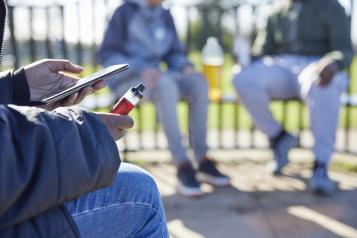Providing powerful evidence for new public health legislation

What did the local Healthwatch evidence show?
Healthwatch Blackpool is based in the local authority with the highest average percentage of smokers in England and has worse public health outcomes than the England average across many indicators.
Following a rise in concerns about young people using e-cigarettes and vapes, Healthwatch Blackpool launched a major project in 2023 and collected feedback from 4,170 children and young people, 297 parents and carers and 138 professionals.
It found that around three in 10 (31%) children and young people said they currently or sometimes vape. More than 40% of those who vaped did this daily and a similar number had been using vapes for a year or more.
The reasons young people gave for vaping included coping with stress, improving their mental health and peer pressure. They liked the flavours, found them cheap and easy to buy and saw them being promoted on social media.
One third of teachers and other professionals surveyed for the project were worried about the lack of research on vaping, and over two in five parents and carers raised concerns about safety and the impact on young people's long-term health.
How did we ensure this evidence informed MPs?
We recognised that Blackpool’s study was the largest of its kind to date, based on evidence from other bodies that we had monitored since the previous Prime Minister, Rishi Sunak, had first proposed the smoking and vaping bans.
We brought the report to the attention of Dr Caroline Johnson, the MP for Sleaford and North Hykeham, a paediatrician and, at the time, a Conservative member of the parliamentary Health and Social Care Committee.
We also sent the report to England’s Chief Medical Officer, health ministers and other MPs.
How has our evidence been used?
The bill was backed overwhelmingly during its second reading in the Commons on 26 November 2024. In that debate, Dr Johnson, now shadow health minister, referenced the Healthwatch Blackpool findings as she described why it was important to back the measures:
"A report from Healthwatch said that 31% of the more than 4,000 under-18s it surveyed were regularly vaping….Nicotine is a powerfully addictive product. Young people are particularly susceptible to it, so it is very important that we protect children from vaping and other nicotine products.”
When a committee further debated the bill's wording in January 2025, Dr Johnson added: “Are children vaping? Yes, I am afraid to say that they are, in large quantities. The biggest report of which I am aware that looked specifically at rates of youth vaping was published in 2023 by Healthwatch Blackpool.” She cited its figures on the number of young people vaping, including 65% of whom expressed a preference for fruity flavoured vapes.
“There is clearly an issue that vapes are being directly marketed to children with bright, attractive colours. Some of the most popular flavours include bubble gum, cotton candy, strawberry ice cream and unicorn milkshake. What does unicorn milkshake taste like? I have no idea, but it is easy to see the appeal to children.” Dr Johnson said.
As well as banning the sale of vapes to under-18s, the bill as it currently stands also contains powers to stop vape manufacturers using flavours or advertising that explicitly target children. Vapes will still be allowed to be sold to adults, recognising their role as a stop-smoking aid.
The government also announced in February 2025 that a 10-year academic study will be carried out into the long-term health effects of vaping on children and young people.


